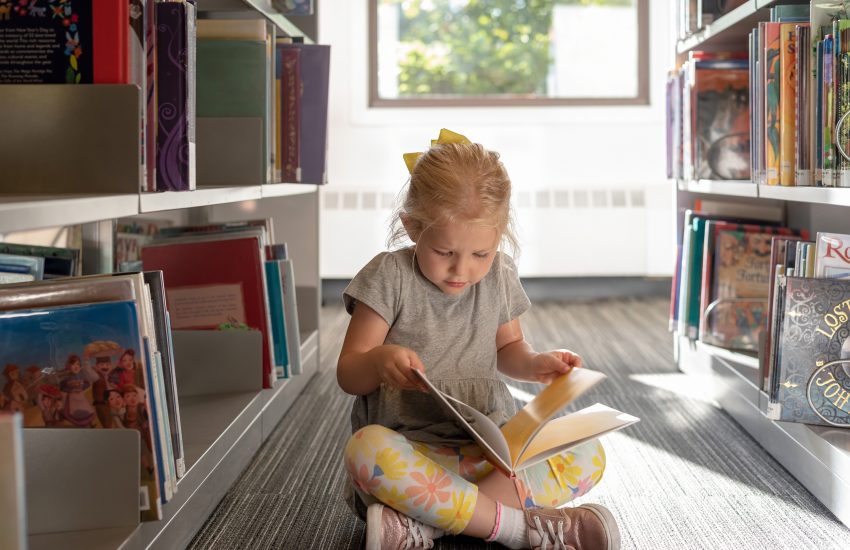8 Ways To Safely Introduce Independence To Your Children
As a parent, one of the most difficult things to adjust to is seeing our children go from being completely reliant on us to moving into their teen years and wanting more independence. Navigating this well is really important, as it can be crucial in maintaining your tweens’ trust and helping them grow into a confident teenager and then adult. We’ve put together 10 different parenting hacks that you can do to help introduce independence to your children in a safe way, covering all aspects of life.
Set Fair Boundaries
The first thing to remember when it comes to allowing your tweens to be independent yet safe is to set fair boundaries. Your tween will want to go out with friends and do things on their own more, however you want to keep them safe. So, setting some boundaries like contacting you once an hour when they’re out and having Find My Friends switched on. Depending on what they are wanting to do, the boundaries will adjust, so just try to be reasonable with your decisions and think about things from their perspective whilst also keeping them safe. Something else that will build trust between you when you’re having the conversation of boundaries is to ask them what boundaries they’d like you to stick to as a parent, showing that you’re equals and you respect that your child is growing up.
Start Independence At Home
To show that you trust your child, you should start independence at home. Showing that you want your child to be an important part of making decisions at home will show them they’re valued and improve their confidence. This sense of independence and confidence will help them to navigate different situations outside of the house. A good place to start is by involving them in regular family decisions such as planning the food shop together and allowing them to request different foods throughout the week, and then be involved in the cooking of the meal. Get your child as involved as possible and allow them to make decisions for themselves and the family.
Get Them A Debit Card
Financial independence is absolutely key in adulthood, so teaching them about the meaning of money early on is so important, to keep them safe from debt in the future. A great way to do this is to get them a debit card. There are so many versions that are designed specifically for young people, where parents have control of the accounts and can load money onto the cards, then your child can make savings pots and take pride in saving their money.
To go along with this, many families do something called “family taxes”. So, each month, you can tell your child how much pocket money they get, and then a portion of it goes into family taxes. With this money, it will go into a pot, and then every so often you can decide as a family how you want to spend that money. It could be a day trip out somewhere as a family, a meal out or something for the house, like a new TV or games console. It will teach your child to learn about compromise when it comes to spending, as well as the value of money.
Take Responsibility For Their Health
Something else that is an important skill for your child to learn is to take responsibility for their health. Not only will this keep them safe, but it will encourage them in the future to take action when something isn’t right and to put their trust in medical professionals. This can start with things like encouraging your tween to go into their dentist appointment on their own. Look for a family-friendly dentist in Solihull, Swansea, Southampton or wherever you’re based, then if they’re nervous go into a few appointments with them, then say you’re happy to wait in the waiting room if they’re happy. Also encouraging tweens to order their own food in restaurants, pay for their own things in shops and ask questions can all help to build confidence.
Take Their Problems Seriously
Something that will encourage your child to be independent and also keep them safe is to take their problems seriously. When something happens as a tween, even if it’s something small, it can seem like the end of the world. Your teenager will be going through massive changes and may not know how to deal with concerns properly yet, so being understanding, taking their problems seriously and helping them to address them is the best thing to do, no matter how big or small the problem. When they’re older and start to come across bigger issues and concerns, they will be used to speaking to you about them and will feel confident and safe coming to you for advice. Allowing them to feel like an adult when discussing issues will help them to grow and build your relationship.
Teach Them To Be Safe
Whilst you want to give your child room to be independent, the reality is, bad things do happen. So, as well as setting boundaries and encouraging your child to socialise in safe environments and with the right people, you should be realistic about the bad things that can happen and how they avoid them. Encouraging them to do some kind of self defence as a hobby is a good place to start, to give them the confidence to stand up for themselves. Deterring them from spending time with people they don’t know is also always advised, explaining the dangers. Ensure they have emergency numbers in their phone and know how to use the emergency signals, then also send them out with a portable charger so they can always get in touch with you. Of course we hope that these things will never need to be used, but being realistic with your child about safety will help them to be more cautious about where and with whom they are spending time.
Encourage Interests In Safe Environments
Another way you can encourage independence is to introduce them to safe environments where they can have fun and be responsible. Places like boxing gyms where discipline is taught, dance classes where you learn confidence, sports clubs and drama groups all give your child space to do things on their own, be independent and do something they enjoy, whilst in a safe environment. Encouraging your child to have interests like this could deter them from wanting to spend time with the wrong people in the wrong places, and instead, help to contribute to their confidence and who they become as an adult.
Mobile Phone and Social Media
The world is changing and it’s very tech driven, so it’s unrealistic to think that your child won’t have a mobile phone and social media, to ensure when it comes to safety, social media and mental health, they’re protected. As a parent, it’s your job to teach them about the dangers of social media and how to navigate it. Firstly, set clear boundaries and put some parental controls on the device. Then, when they’re in their younger teenage years, you could allow them to have social media, but you would have access to the account too. As they move towards 16, you’ll need to relinquish some control. Your child should also do an online course about the dangers of social media, which will teach them about people messaging them, pretending to be people they aren’t and all about privacy. It should also cover things like knowing when you say something you can’t take back and about remaining safe when it comes to photos. You should also show them some real life stories of things that have happened through social media to warn them of how serious things can be. Discussing body image is also really important when it comes to social media, reinforcing that it’s not real life. All of these things will allow your child to join in with their friends but also stay safe.















